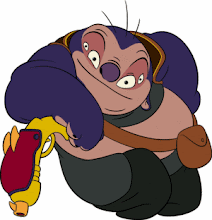In the story "A Christmas Carol" by Charles Dickens, the main character Ebenezer Scrooge had been shown three different scenarios of the past, present, and yet to come. Each scenario was shown with the hope of making Scrooge change from his selfish ways, with the last scenario finally succeeding.
The last scene seemed rather off though. Scrooge only yielded to the possible future that he might be buried in an unattended grave. He then changed after that into a generous person.
Why is this though? From my point of view, he changed only to save his own skin and prevent the possible view from happening. In the end, his acts of selflessness can have a reason other than just "wanting to change". In a way, this is a form of "selfish selflessness" and not "absolute selflessness" at all. In the end, one really can't say that Scrooge has fully converted since he converted only out of convenience rather than realizing any wrong in his actions by himself.
This makes the story a weak basis of morals. Rooting good deeds out of threats is negative reinforcement.
Then again, things like these are unavoidable.
